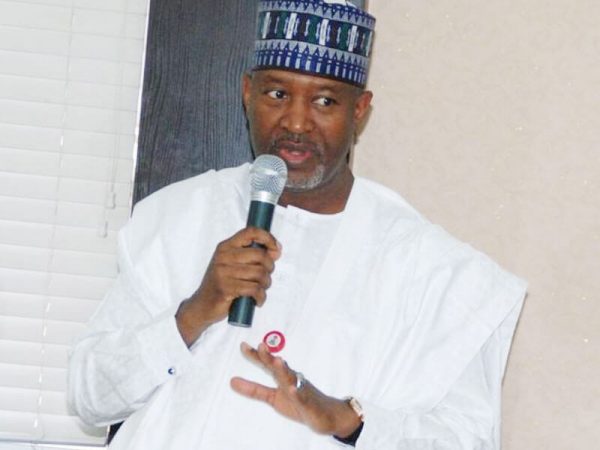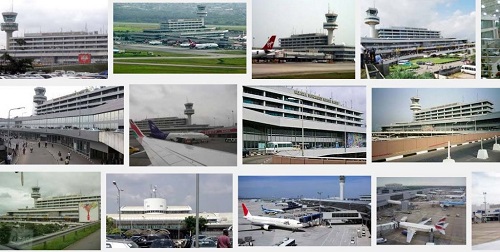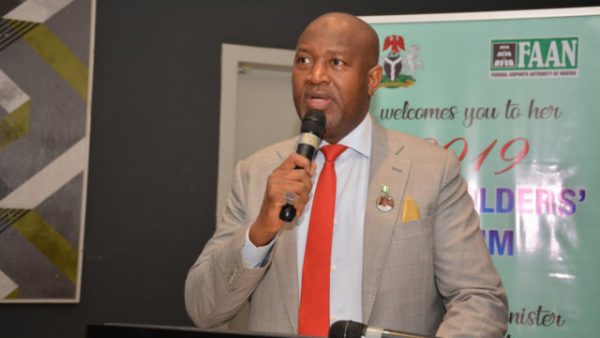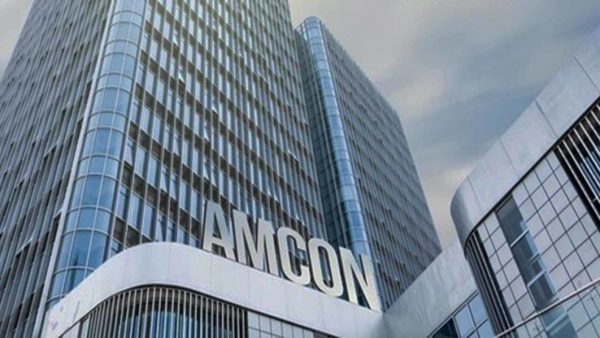No Shipping Policy In Nigeria For 25 Years- Akabuogu
Sunny Edemenang – Uyo

Nigeria for the past twenty five years, has operated without a well articulated shipping policy and regulatory framework as a blueprint for driving the nation’s blue economy, this has hampered the growth of the Maritime sector and renders the Cabotage Laws efficiently ineffective, said a foremost Maritime lawyer.
According to Dr Emeka Akabogu, a Maritime legal luminary who asserted this during a chat with our correspondent in Uyo, recently, added, “in the last twenty five years, we have not had any major maritime policy. Not even one wholesome policy for the country in twenty five years”.
He explained that the nearest effort the country made towards achieving maritime policy was under what was then known as the National Shipping Act which gave birth to the erstwhile National Maritime Authority NMA from which NIMASA evolved.
The International Maritime Organization IMO, has set out a lot of conventions to ensure sustainable development as far as maritime operations are concerned. These conventions go to the understanding of the key laws which anchor Nigeria’s operation of the shipping industry and their applications.
Some of these conventions are, Safety of Life at Sea – SOLAS, Maritime Pollution Control – MARPOL, STCW and, the Maritime Labour ILO Convention, passed in 2006 which was directly purposed towards improving the welfare and working conditions of those onboard the ships in the maritime industries.
If one may ask, to what extent have the key laws which anchor Nigeria’s operation of the shipping industry and their applications, been successful?
Nigeria has a lot of laws which stick to sustainable Shipping Development, NIMASA Act 2007, created a forum for proper funding of the Maritime Academy of Nigeria MAN, Oron.
NPA Act: governs the Ports and other related to technical operations in the ports.
The Cabotage Act: 2003, takes care of local content in the shipping operations.
NIWA Act, conveys powers to survey, remove and receive derelicts, wrecks from inland waterways.
These laws and the regulations following them are the foundation upon which most of the activities undertaken in the maritime industries are founded. All legal and policy frameworks have to be consistent with the mandate of sustainable Ship Development.
Dr Akabogu highlighted that the only policies existing in the industry that are of any consequence, include the Cabotage and the Port Concession Policies.
The Cabotage Policy was based on the need to ensure that all the shipping activities which are undertaken within, creates values for Nigerians, and that from the advocacy point of view, was not just a policy, but was passed into law in 2003.
In 2005, the country initiated Port Concession and deliberately removed operations of ports in Nigeria from the hands of government, and placed it in the hands of private operators in such a way that the efficiency of the operations would be optimized. However, the particular policy did not have any legal backing.
Unfortunately, the Cabotage Act has not been successful, even though it was qualified into law for the reason that, Nigeria has not had what the maritime legal luminary described as, “a wholesome end-to-end all encompassing shipping policy for the country”.
He cited lack of cooperation across the entire value chain of the government as concerns compounding the failures of the Cabotage Act, in the sense that while some part of government are interested in Cabotage being effectively implemented, some other agencies are not as Keen on it being effectively implemented.
Where the agencies who are all the necessary party to the Cabotage regime do not work together, then, it is necessary, the policy can not work.
All Cabotage Vessels need NNPC who have access to a large part of the valuable cargoes to give them primacy to be in operations. This would enable investors to add value to Cabotage by expanding their businesses, service loans they took as one of the goals of sustainable economic development.
Dr Akabogu called for an end to the vicious cycle of conflicts among agencies of government in the maritime industries by evolving a wholesome policy to stem the tides of suboptimal adherence to laws like we have in Cabotage Law, which works counter to the expected sustainable economic development.
He called for the wholesome policy to be put in place through the collaboration of the entire stakeholders and the government, while casting his doubt that “the laws and policies we have at the moment holds no positive outcome enough to give us the confidence that in the next twenty five years, for instance, Maritime Industry will get to a particular stage beyond 0.01% GDP forecast by the Nigeria Bureau of Statistics, NBS.
This dismal 0.01% GDP calls for maritime policy to be focused on identifying these components of the data to ensure greater feasibility of the Maritime Industry within the context of the larger economy.
Dr Akabogu recommended that the Ministry of Marine and Blue Economy, should commission an end-to-end National Shipping Policy to provide a comprehensive framework for the attainment of Sustainable Shipping Policy.
He called for the qualification of policies which are backed by law to ensure clarity and compatibility in the sector.
Integrate a good policy into a consistent body of policies to enhance the impact of shipping regulations and practice.
Focus on enhancing bigger connections and indicators to measure the shipping industry and their growth effectively and ensure economic benefits are dispensable to key operators.
Promote adherence to the rule of law in the implementation of maritime law to improve compliance and governance.







